Ditapis dengan

Modern languages across the curriculum
This book sets out the agenda for the future of modern language teaching in schools. It aims to look beyond the dominant methods of second language teaching to a new approach emphasising the integration of language learning within the wider curriculum. Through research and case studies from the UK, France, Spain, Italy, Germany, Belgium and Finland, the book shows how teachers and policy makers…
- Edisi
- -
- ISBN/ISSN
- 9781136850875
- Deskripsi Fisik
- x, 222p. : ill.
- Judul Seri
- -
- No. Panggil
- 418.0071 MOD m
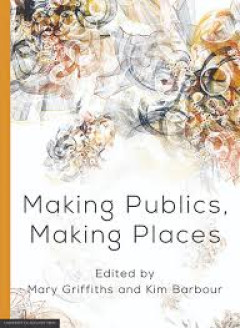
Making publics, making places
This book focuses on the surprising generative possibilities which digital and smart technologies offer media consumers, citizens, institutions and governments in making publics and places, across topics as diverse as Twitter audiences, rural news, the elasticity of the public sphere, Weibo, cultural heritage and responsive spaces in smart cities. Multidisciplinary perspectives engage with crit…
- Edisi
- -
- ISBN/ISSN
- 9781925261431
- Deskripsi Fisik
- xviii, 216p. : ill.
- Judul Seri
- -
- No. Panggil
- 307.76 MAK m
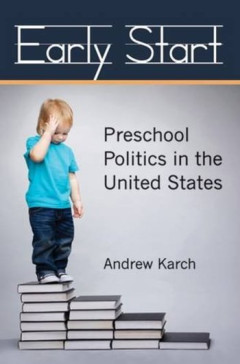
Early start :preschool politics in the United States
In the United States, preschool education is characterized by the dominance of a variegated private sector and patchy, uncoordinated oversight of the public sector. Tracing the history of the American debate over preschool education, Andrew Karch argues that the current state of decentralization and fragmentation is the consequence of a chain of reactions and counterreactions to policy decision…
- Edisi
- -
- ISBN/ISSN
- 9780472118724
- Deskripsi Fisik
- x, 274p. : ill.
- Judul Seri
- -
- No. Panggil
- 372.210973 KAR e
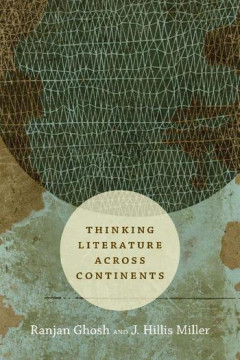
Thinking literature across continents
'Thinking Literature across Continents' finds Ranjan Ghosh and J. Hillis Miller—two thinkers from different continents, cultures, training, and critical perspectives—debating and reflecting upon what literature is and why it matters. Ghosh and Miller do not attempt to formulate a joint theory of literature; rather, they allow their different backgrounds and lively disagreements to stimulate…
- Edisi
- -
- ISBN/ISSN
- 9780822373698
- Deskripsi Fisik
- xiii, 316p. : ill.
- Judul Seri
- -
- No. Panggil
- 809 GHO t
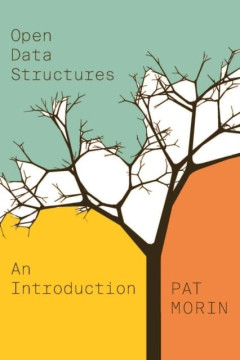
Open data structures :an introduction
Offered as an introduction to the field of data structures and algorithms, Open Data Structures covers the implementation and analysis of data structures for sequences (lists), queues, priority queues, unordered dictionaries, ordered dictionaries, and graphs. Focusing on a mathematically rigorous approach that is fast, practical, and efficient, Morin clearly and briskly presents instruction alo…
- Edisi
- -
- ISBN/ISSN
- 9781927356395
- Deskripsi Fisik
- xiv, 322p. : ill.
- Judul Seri
- -
- No. Panggil
- 005.73 MOR o
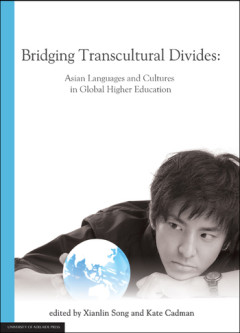
Bridging transcultural divides :Asian languages and cultures in global highte…
This volume presents the diverse approaches and achievements of scholars of Asian cultures and languages in today’s global academy. Recent vast increases in student numbers and ethnic diversity have created pressing challenges for a higher education which engages with contemporary concerns for Asian societies as well as for Asian students involved in Western education. This collection of scho…
- Edisi
- -
- ISBN/ISSN
- 9781922064318
- Deskripsi Fisik
- xvi, 286p. : ill.
- Judul Seri
- -
- No. Panggil
- 495 BRI b
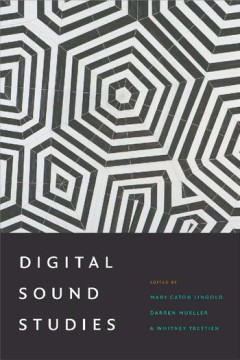
Digital sound studies
The digital turn has created new opportunities for scholars across disciplines to use sound in their scholarship. This volume’s contributors provide a blueprint for making sound central to research, teaching, and dissemination. They show how digital sound studies has the potential to transform silent, text-centric cultures of communication in the humanities into rich, multisensory experiences…
- Edisi
- -
- ISBN/ISSN
- 9780822371991
- Deskripsi Fisik
- xii, 298p. : ill.
- Judul Seri
- -
- No. Panggil
- 001.30285 DIG d
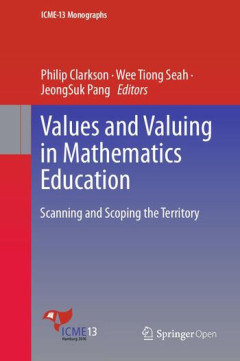
Values and valuing in mathematics education :scanning and scoping the territory
This engaging open access book discusses how a values and valuing perspective can facilitate a more effective mathematics pedagogical experience, and allows readers to explore multiple applications of the values perspective across different education systems. It also clearly shows that teaching mathematics involves not only reasoning and feelings, but also students’ interactions with their cu…
- Edisi
- -
- ISBN/ISSN
- 9783030168926
- Deskripsi Fisik
- x, 222p. : ill.
- Judul Seri
- -
- No. Panggil
- 510.71 VAL v

Environmental leadership capacity building in higher education :experience an…
The Graduate Program in Sustainability Science under the Department of Urban Engineering of The University of Tokyo has been running an environmental leadership education program at the graduate student level since 2007 called the Asian Program for Incubation of Environmental Leaders (APIEL). This book describes the University’s experiences in establishing and organizing that program and prov…
- Edisi
- -
- ISBN/ISSN
- 9784431543404
- Deskripsi Fisik
- xi, 140p. : ill.
- Judul Seri
- -
- No. Panggil
- 333.7072 ENV e
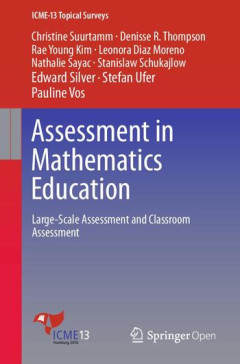
Assessment in mathematics education :large-scale assessment and classroom ass…
This book provides an overview of current research on a variety of topics related to both large-scale and classroom assessment. First, the purposes, traditions and principles of assessment are considered, with particular attention to those common to all levels of assessment and those more connected with either classroom or large-scale assessment. Assessment design based on sound assessment prin…
- Edisi
- -
- ISBN/ISSN
- 9783319323947
- Deskripsi Fisik
- ix, 38p. : ill.
- Judul Seri
- -
- No. Panggil
- 510.71 ASS a
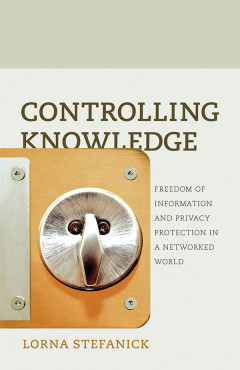
Controlling knowledge :freedom of information and privacy protection in a net…
Digital communications technology has immeasurably enhanced our capacity to store, retrieve, and exchange information. But who controls our access to information, and who decides what others have a right to know about us? In Controlling Knowledge, author Lorna Stefanick offers a thought-provoking and user-friendly overview of the regulatory regime that currently governs freedom of information a…
- Edisi
- -
- ISBN/ISSN
- 9781926836614
- Deskripsi Fisik
- xi, 251p. : ill.
- Judul Seri
- -
- No. Panggil
- 342.0853 STE c

Human and machine consciousness
- Edisi
- -
- ISBN/ISSN
- 9781783743018
- Deskripsi Fisik
- 234 p.; 24 cm.
- Judul Seri
- -
- No. Panggil
- 150 GAM h
- Edisi
- -
- ISBN/ISSN
- 9781783743018
- Deskripsi Fisik
- 234 p.; 24 cm.
- Judul Seri
- -
- No. Panggil
- 150 GAM h
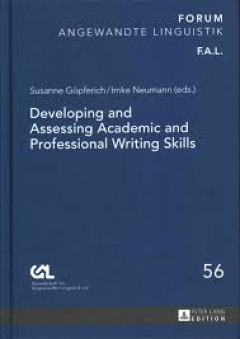
Developing and assessing academic and professional writing skills
- Edisi
- -
- ISBN/ISSN
- 9783653049732
- Deskripsi Fisik
- 205 p.; 24 cm.
- Judul Seri
- -
- No. Panggil
- 808.0071 DEV d
- Edisi
- -
- ISBN/ISSN
- 9783653049732
- Deskripsi Fisik
- 205 p.; 24 cm.
- Judul Seri
- -
- No. Panggil
- 808.0071 DEV d
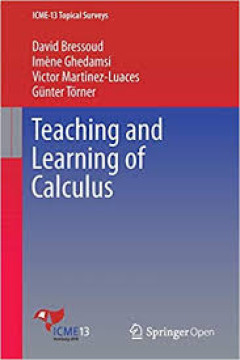
Teaching and learning of calculus
This “ICME-13 Topical Survey” aims to give a view of some of the main evolutions of the research in the field of learning and teaching Calculus, with a particular focus on established research topics associated to limit, derivative and integral. These evolutions are approached with regard to the main trends in the field of mathematics education such as cognitive development or task design…
- Edisi
- -
- ISBN/ISSN
- 9783319329741
- Deskripsi Fisik
- -
- Judul Seri
- -
- No. Panggil
- 515 BRE t
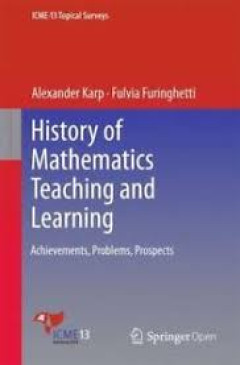
History of mathematics teaching and learning
The history of mathematics education is afield of study that is both old and new. It is old because scholarly works in the field began to appear over 150 years ago. Schubring (2014a) refers to Fisch (1843), as possibly thefirst work on the subject published in Germany. In the United States thefirst dissertations on mathematics education (Jackson 1906; Stamper 1906) focused specifically on i…
- Edisi
- -
- ISBN/ISSN
- 9783319316154
- Deskripsi Fisik
- -
- Judul Seri
- -
- No. Panggil
- 510.71 KAR h

Women and migration:responses in art and history
- Edisi
- -
- ISBN/ISSN
- 9781783745678
- Deskripsi Fisik
- 670 p.; 24 cm.
- Judul Seri
- -
- No. Panggil
- -
- Edisi
- -
- ISBN/ISSN
- 9781783745678
- Deskripsi Fisik
- 670 p.; 24 cm.
- Judul Seri
- -
- No. Panggil
- -

Science as social existence:heidegger and the sociology of scientific knowledge
n this bold and original study, Jeff Kochan constructively combines the sociology of scientific knowledge (SSK) with Martin Heidegger’s early existential conception of science. Kochan shows convincingly that these apparently quite different approaches to science are, in fact, largely compatible, even mutually reinforcing. By combining Heidegger with SSK, Kochan argues, we can explicate, elab…
- Edisi
- -
- ISBN/ISSN
- 9781783744114
- Deskripsi Fisik
- 444 p.
- Judul Seri
- -
- No. Panggil
- -
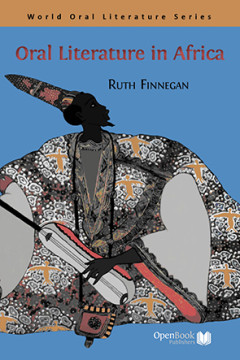
Oral literature in Africa
- Edisi
- -
- ISBN/ISSN
- 9781906924720
- Deskripsi Fisik
- xliv + 570 p. ; 24 cm.
- Judul Seri
- -
- No. Panggil
- -
- Edisi
- -
- ISBN/ISSN
- 9781906924720
- Deskripsi Fisik
- xliv + 570 p. ; 24 cm.
- Judul Seri
- -
- No. Panggil
- -
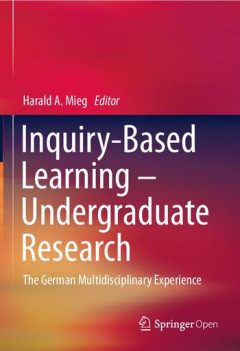
Inquiry-based learning -- undergraduate research :the German multidisciplinar…
This open access book provides a systematic overview of experiences with Inquiry-Based Learning (IBL) and undergraduate research (UR) in German universities, covering both research universities (Universitäten) and universities of applied sciences (Fachhochschulen). Divided into three parts, the book starts with the principles and common practices of IBL/UR at all universities. Part Two discuss…
- Edisi
- -
- ISBN/ISSN
- 9783030142230
- Deskripsi Fisik
- xvi, 406p. : ill.
- Judul Seri
- -
- No. Panggil
- 378 INQ i
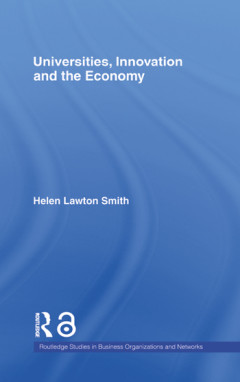
Universities, innovation and the economy
Universities are increasingly expected to be at the heart of networked structures contributing to society in meaningful and measurable ways through research, the teaching and development of experts, and knowledge innovation. While there is nothing new in universities’ links with industry, what is recent is their role as territorial actors. It is government policy in many countries that univer…
- Edisi
- -
- ISBN/ISSN
- 9781134344185
- Deskripsi Fisik
- xii, 265p. : ill.
- Judul Seri
- -
- No. Panggil
- 338.476200094 SMI u
 Karya Umum
Karya Umum  Filsafat
Filsafat  Agama
Agama  Ilmu-ilmu Sosial
Ilmu-ilmu Sosial  Bahasa
Bahasa  Ilmu-ilmu Murni
Ilmu-ilmu Murni  Ilmu-ilmu Terapan
Ilmu-ilmu Terapan  Kesenian, Hiburan, dan Olahraga
Kesenian, Hiburan, dan Olahraga  Kesusastraan
Kesusastraan  Geografi dan Sejarah
Geografi dan Sejarah